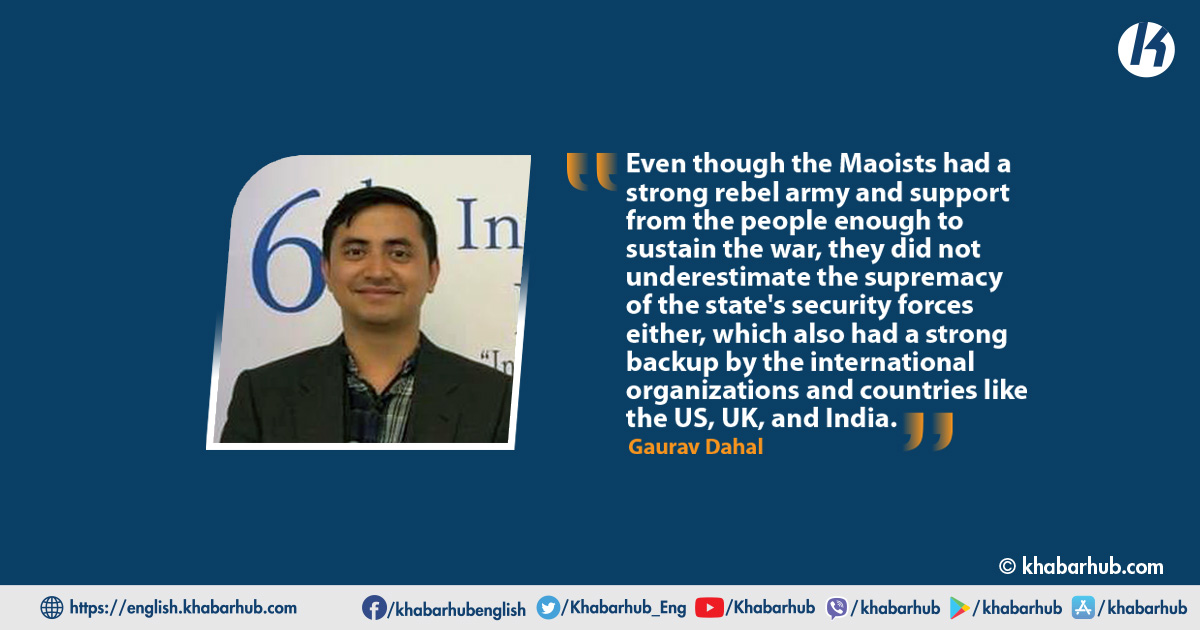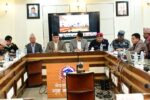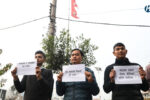It is idiotic to scavenge rationality in the battleground as the boots on the ground’s only objective is to annihilate its opponent or else face the same fate by others.
This is because they have been trained in the same way, thus, they act accordingly using every means necessary to achieve their objective.
There are no second rules besides killing or being killed in the battleground. Surficial study of warfare presents itself as the plans and preparations that revolve around this single objective resulting in the complete annihilation of the opponent with senseless use of violence.
Warfare as a Political Objective
In contrast, while examining the words of Clausewitz, when we try to explore warfare as a political objective, it becomes evident that war requires some objectives.
As such, politics plays an important role to constrain the senseless use of violence in war as assumed earlier. According to him, “War is merely the continuation of politics with other means.”
He elaborates that war should be fought (or avoided) based on political goals. This political supremacy over military affairs can be rephrased by “civilian control over military” for today’s states. This is what transforms absolute war into a real war whereas real war becomes rational and logical with the political objectives.
Similarly, the political authorities determine the required amount of effort to exert in the war. Here, he assumes that both the actors of war should be rational, capable of making rational decisions.
The actors interact with each other and have logical thinking. Here, the adversaries are known, their political, military, and economical capabilities are well understood.
They are logical so their goal is not to destroy each other completely, instead, they use war as an instrument to make their enemy do as the former desires.
Searching rationality in Nepal’s Civil war
From 1996-2005, Nepal faced the 10-year-long Maoist insurgency where more than 17,000 people lost their lives. As Clausewitz has explained that war is never without aim or goal. As with any war, the aim of this war was also to compel the enemy to do as their will.
Even though the Maoists had a strong rebel army and support from the people enough to sustain the war, they did not underestimate the supremacy of the state’s security forces either, which also had a strong backup by the international organizations and countries like the US, UK, and India.
The insurgency was not isolated but backed with major objectives for achieving recognition and equality for all people in the country.
Favorable geographical factors like unemployment, social injustice, lack of good governance played a crucial role in achieving support from the affected people resulting in the Maoist rebel’s People Liberation Army (PLA) becoming the largest form of an insurgent that mostly dominated the rural areas of Nepal.
The complete annihilation of the enemy should not always have to be the main objective. Finally, civilian control over the military was gradually achieved in Nepal as a result of the rationality of the conflicting parties i.e., government and Maoists, which led them to peace talk and end of 10 years-long conflicts.
During their heyday, the talk between the government and Maoist leaders came to an understanding, and a comprehensive peace agreement was signed.
To quote Hammes, “revolutions in military affairs are the culmination of practical men seeking a practical solution to the tactical and operational problems of their day”.
According to him, we will be facing a new type of enemy and a fundamentally new type of warfare which becomes evident as Maoists transformed themselves into a competing political Party of Nepal.
Both the actors here played rationally, and their war had some political objectives which were eventually achieved. As they saw their objectives being fulfilled, they did the most logical thing i.e., to end the war instead of attempting to annihilate their adversaries.
Even though the Maoists had a strong rebel army and support from the people enough to sustain the war, they did not underestimate the supremacy of the state’s security forces either, which also had a strong backup by the international organizations and countries like the US, UK, and India.
Instead, they toned down their ideology and joined partnerships with the other political parties in an attempt to fulfill their objectives. This resulted in them transforming themselves into a competing political party which was a rare event in the world.
Examining this case with the words of Clausewitz we can see that the actors of this war acted rationally containing logical thinking ability.
The complete annihilation of the enemy should not always have to be the main objective. Finally, civilian control over the military was gradually achieved in Nepal as a result of the rationality of the conflicting parties i.e., government and Maoists, which led them to peace talk and end of 10 years-long conflicts.
(The author is an intern at NIICE)
References: CARL VON CLAUSEWITZ- On War
Colonel Thomas X. Hammes, USMC- the Sling and The Stone; on the war in the 21st century; 2006









Comment